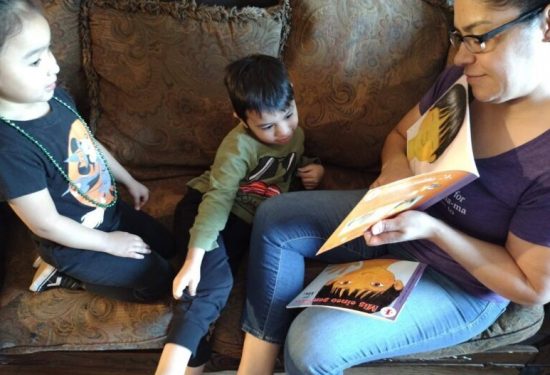There is a persistent public perception that home-based child care providers are untrained and uneducated and deliver poor quality child care to young children. Sadly, the public discourse about home-based child care providers is divorced from the reality that roughly 6.4 million children under the age of 5 receive care in a home-based setting, and that home-based care is the most prevalent form of child care in the country. What is it that families of young children know that the public at large doesn’t? Well, for starters, home-based child care providers are not only deeply committed, passionate, and mission driven in their work with children, families, and communities, but they are also both trained and educated. National Survey of Early Care & Education (NSECE) 2021 data informs us that 63% of family child care providers have a degree or have completed some college. These numbers are also consistent with data for family friend and neighbor (FFN) caregivers (unlisted providers as named in the data). According to the data, 62.2% of FFN caregivers who are paid for care work and 63.2% who are unpaid have completed a degree or have completed some college. The widespread misperception about the training and education of home-based child care providers contributes to their invisibility when it comes to recognizing threats to the child care workforce and is one reason home-based child care providers are often left out of early childhood policy solutions. Data from the RAPID survey project demonstrates how pernicious this problem is.
Recent RAPID survey findings reveal that student loan debt among the child care workforce is increasing. According to the fact sheet, “More than one in five (21%) child care providers reported that they had student loan debt in November 2023, a disproportionately high rate compared to 16% of the U.S. adult population overall. (RAPID Sept 2024)” Even more disturbing — “family, friend, and neighbor (FFN) providers reported the highest levels of student loan debt: $109,000 on average, more than three times the student loan debt reported on average by center directors, home-based providers, or center teachers (RAPID Sept 2024). This on top of data indicating that despite the end of the pandemic, the material hardship experienced by the child care workforce is persistent, prevalent and increasing.
Home-based child care providers are the largest group of early care providers in this country and they are the lowest-compensated providers in our system (many earning just $10,000 per year). They are often excluded from state child care funding sources, and they are the providers whose voices and experiences are least likely to be heard in policy and systems conversations. They are also overwhelmingly women of color. This continued silencing and overlooking of home-based providers underscores the historic inequalities visited upon Black and brown people and continues to undermine the economic security of their families while they remain steadfast in their commitment to showing up for America’s children and families.
Adequate compensation, access to family-supporting benefits (health insurance, housing benefits, and retirement), and opportunities for debt forgiveness (both from student loans and medical expenses) are all important facets of child care compensation that our policy solutions must address. Student loan debt is a particularly important aspect of provider economic well-being because it is often a direct result of early childhood education policies that demand degrees and qualifications, but only rarely cover some of the cost and do not ensure that the workforce is paid commensurate with their experience and degree attainment. The home-based providers and caregivers that we work with at Home Grown both desire degrees and value the ones they have.
“Since the student loan payments have been unpaused, I feel overwhelmed.” – FFN provider in Missouri (RAPID EC Sept 2024)
“Because I am a licensed home provider, I do not qualify for the benefits of someone working in a nonprofit. I feel I need to quit my job and close my own program so I can take advantage of the forgiveness programs that only apply to those employed at a nonprofit. Lately, I very much regret letting others talk me into going back to school because the debt is crippling.” –FCC provider in Michigan (RAPID EC Sept 2024)
“I have over $50,000 in student loan debt from obtaining my associates degree [through] master’s degree in Early Childhood Education. I have been a family child care provider for 30 years. I graduated with my master’s in 2013 and have been carrying this debt for the past 11 years. I have been making minimal payments through the income-[contingent] repayment plan because my yearly income can’t support anything more. My estimated monthly student loan repayments are $601.99. I am a 62-year-old single, educated, woman of color and my average yearly income is $30,000. I obtained my master’s degree to better service the children and families in my community by providing high-quality early childhood education and care experiences; by learning more I have been able to offer more … [family child care providers] are grossly underpaid and not eligible for loan forgiveness. This is a true burden.”I should be thinking about retirement, not worrying about how to pay a student loan.” –FCC Provider in Pennsylvania
“Because I am a licensed home provider, I do not qualify for the benefits of someone working in a nonprofit. I feel I need to quit my job and close my own program so I can take advantage of the forgiveness programs that only apply to those employed at a nonprofit. Lately, I very much regret letting others talk me into going back to school because the debt is crippling.” –FCC provider in Michigan (RAPID EC Sept 2024)
This fact sheet data about student loan debt should give us pause — raising wages a few dollars an hour is not a sufficient approach to addressing the child care compensation crisis. We must do more and that means simultaneously investing in living wages and family-sustaining benefits and ensuring programs like Public Service Loan Forgiveness that help with debt elimination are accessible to home-based child care providers, who are the heart of America’s underpaid child care workforce.
As an industry, we must recognize and lift up the stories of home-based child care providers, challenging misperceptions that they are both untrained and uneducated. We also must rise to the occasion to create holistic policy solutions that support all of the early childhood workforce — including family child care and family, friend, and neighbor providers.




